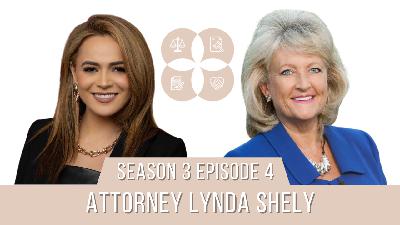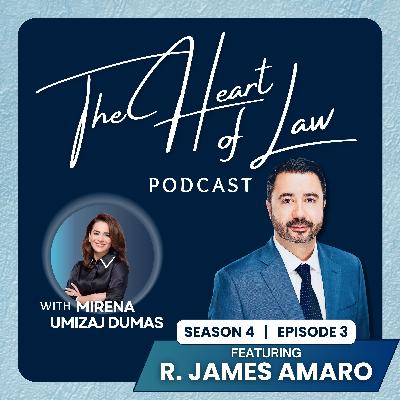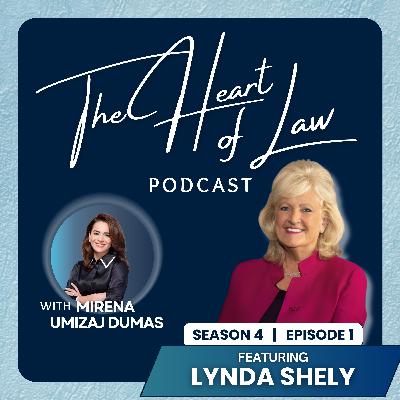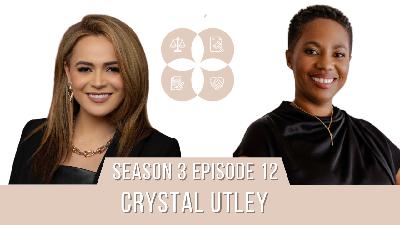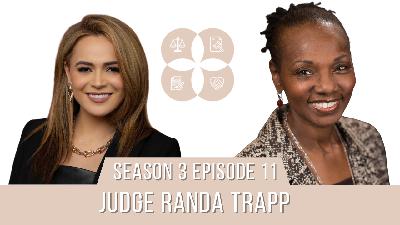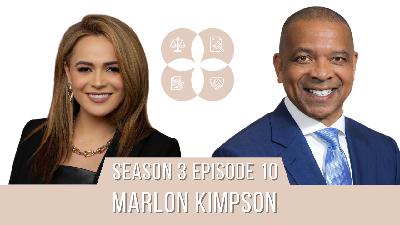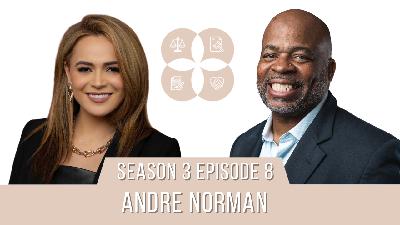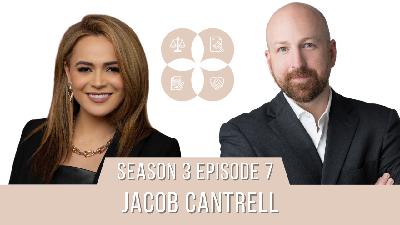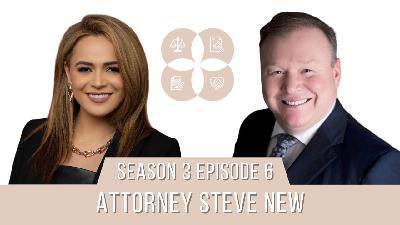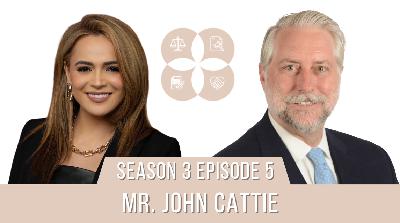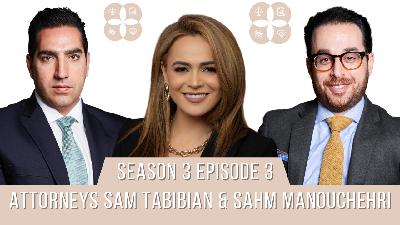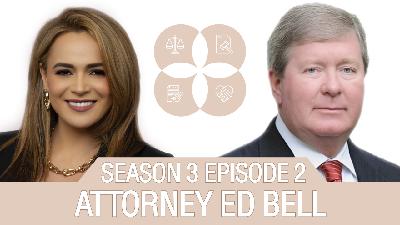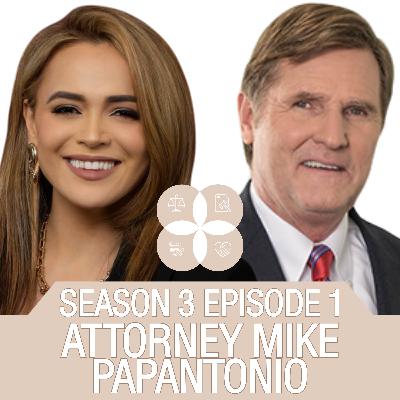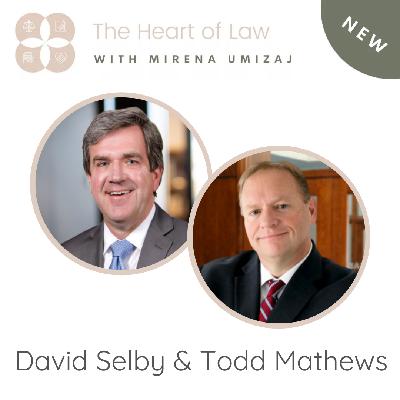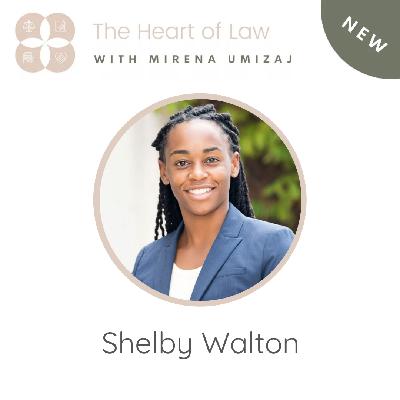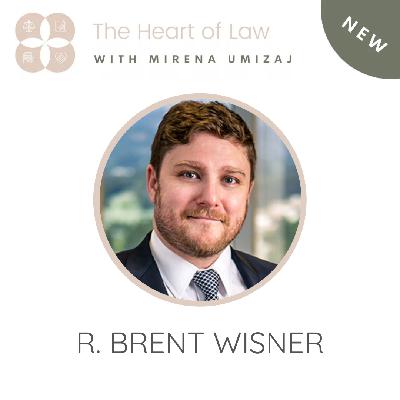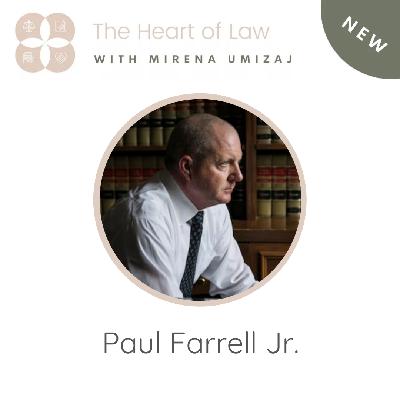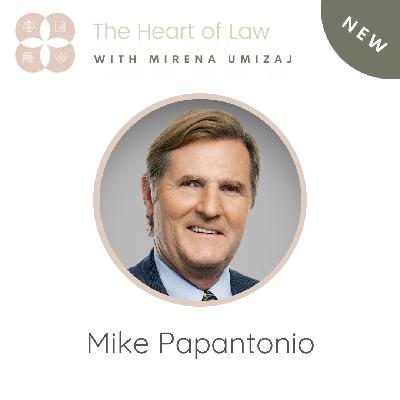3.4: Navigating the Arizona ABS Program: Rule Changes and Rising Opportunities
Description
Prepare to venture into the uncharted territory of Arizona's legal landscape, where the rulebook is being reshaped, and the status quo is bravely defied. In this transformative episode of The Heart of Law, our astute host, Mirena Umizaj, invites Ethics Attorney Lynda Shely, the esteemed founder of The Shely Firm, to shed light on the intricacies of the Arizona Business Structure (ABS) program and its groundbreaking 2021 rule changes. Together they discuss the elimination of Ethics Rule 5.4 and how it has acted as a powerful catalyst, propelling Arizona lawyers to forge collaborative partnerships with non-lawyers, igniting a new era of innovation and opportunity in the legal landscape.
With an impressive private practice spanning over two decades, Attorney Lynda Shely has consistently delivered exemplary representation to numerous law firms while also providing invaluable ethics advice to over 2,000 firms nationwide. However, her influence extends far beyond her thriving practice. With pivotal roles in prominent committees and organizations, including the Arizona Supreme Court's Alternative Business Structure (ABS) Committee, Attorney Lynda Shely stands at the vanguard of the ABS program's development and implementation, driving the advancement of innovative approaches to legal practice.
As the episode unfolds, Attorney Lynda Shely takes a moment to reflect on her personal journey to becoming an ethics attorney, navigating the delicate balance of career and motherhood while raising her three children. Her story serves as a testament to the determination and resilience required to carve a path in the legal profession. Reflecting on her experiences, Attorney Lynda Shely unveils her instrumental role in spearheading the groundbreaking initiative that allows Arizona lawyers to establish law firms with non-lawyers as owners or investors. Addressing misconceptions, she acknowledges lawyers' concerns about potential conflicts of interest. However, she assures listeners that the Arizona ABS program is designed to maintain integrity by safeguarding lawyers' control over legal decisions. She sheds light on the rigorous regulations and meticulous approval process that enable non-lawyers to hold ownership stakes in law firms while respecting the professional autonomy of lawyers in client representation and case selection.
As the conversation progresses, the focus shifts to the intriguing realm of mass torts and its intersection with Wall Street. With artful emphasis, Mirena highlights the profound significance of this intersection, succinctly stating, "this is where the rubber meets the road." Her words resonate as Wall Street ventures into the domain of mass torts, actively investing in law firms through financial loans, seamlessly integrating themselves into the very fabric of the debt structure. In parallel, Mirena and Attorney Lynda Shely explore the ever-evolving landscape of technological advancements, honing in on the transformative impact of chat GPT and its wide-ranging implications for the legal field.
As the final moments of the episode unfold, the spotlight shifts toward the legal landscape in Utah, where uncertainty looms over the issue of non-lawyer ownership. Mirena's mention of Utah's shifting stance from considering partnerships to potential felony charges raises eyebrows and prompts reflection. In response, Attorney Lynda Shely expresses her disappointment in these attempts to restrict innovation and courageously advocates for the embracing of change. She acknowledges that "change is scary,", particularly in the legal profession, where risk aversion often prevails. However, she reminds us that it is precisely this embrace of change that propels progress and allows the legal profession to adapt and better serve its clients.
QUOTABLE QUOTES:
- "I represent firms in every practice area. So, I have to understand the ethics rules, but not necessarily have very detailed knowledge of a specific practice area like mass torts or estate planning or tax."
- "The Arizona Supreme Court created a task force on the future of the profession to look at a couple of issues, not just access to justice, which we all know there is a huge gap in getting legal services to people who need it, but simply informing folks that they might have a legal issue and how to get legal services."
- "Some of us who are ethics lawyers looked at the rules, and one of the rules that they were reviewing was Ethics Rule 5.4, which is the rule that prohibits lawyers from both sharing legal fees with non-lawyers and having a partner who's a non-lawyer. In Arizona, our task force looked at the rule and really kind of looked at what else was going on in the whole world, not just the US. And they looked at the fact that the UK has had these alternative business structure law firms, and an ABS is simply a law firm that has some non-lawyer owners."
- "The UK has had ABS law firms for years, and so has Australia, and they've been able to demonstrate that, look, this provides capitalization to firms, which frequently lawyers are not good at finding capitalization for their firms. It also provides incentives to key paraprofessionals because we all have issues with trying to maintain our staff and keep quality people."
- "The number one misperception about Arizona's program is that it permits non-lawyers to practice law, and that's not true. The other, and I would say this is a legitimate concern, lawyers express concern, oh if we're going to have non-lawyer partners, all they're going to be interested in is the bottom line, and they're going to tell me I shouldn't take depositions because they're too expensive... I get that. And that's a very legitimate concern."
- "Arizona's ABS program is designed to hopefully prevent non-lawyers from controlling the legal decisions that lawyers make. The ABS regulations are very detailed in saying, you know, non-lawyers, you can own a hundred percent of an Arizona law firm that we approve. It has to go through the ABS committee, and you have to get all the non-lawyers, including all the companies, approved by the ABS committee. You can own 100% of the firm, but you cannot direct the legal representation of clients or even which clients the firm will represent."
- "The ABS program actually is more transparent than the existing litigation funding in other states because where you have a law firm in someplace else that borrows money to be able to pay for all of the advertising that they have to do and all the expert witnesses, in the ABS program, you know exactly who's involved with that lawyer because it has to be disclosed in the application. So I would say that the ABS law firm process is much more transparent than regular litigation funding."
- "The ABS application journey, I guess, starts with a lawyer considering that they want to partner with a non-lawyer. And I tell everybody on both sides… do your homework. It's just like being engaged. You don't get engaged overnight. First, you date somebody for a while, and you figure out if your values are compatible... Same thing in a law firm; before you bring a partner on, you do some due diligence, same thing in the ABS process."
- "The ABS applications are very detailed. They require disclosing every person or company that will have a 10% or greater ownership or economic interest in the firm. So, it's kind of a proactive approach to saying before you create this law firm, tell us that you know what you have to have in place."
- "I think the ABS process and the regulations are far better at assuring that the people who are involved in these law firms understand they have an obligation here to serve clients. This is not just about the bottom line; it's a for-profit firm. So yes, you can make profits, but it is about representing the clients."
- "Change is scary. I recognize the concern but number one; you're not going to have Wall Street buying up, gobbling up every law firm in Arizona. That's just not gonna happen. Number two, you don't have to participate in this. I have a law firm in Arizona. It's not an ABS."
- "I appreciate that change in the legal profession is glacial because lawyers are resistant to risk and change, which is good."
- "I don't think Chat GPT is going to eliminate lawyers. I think it probably will help lawyers be more efficient. It's kind of like a giant form file that large firms all have. So I don't see technology eliminating us."
- "I think you're gonna have a lot of main st

